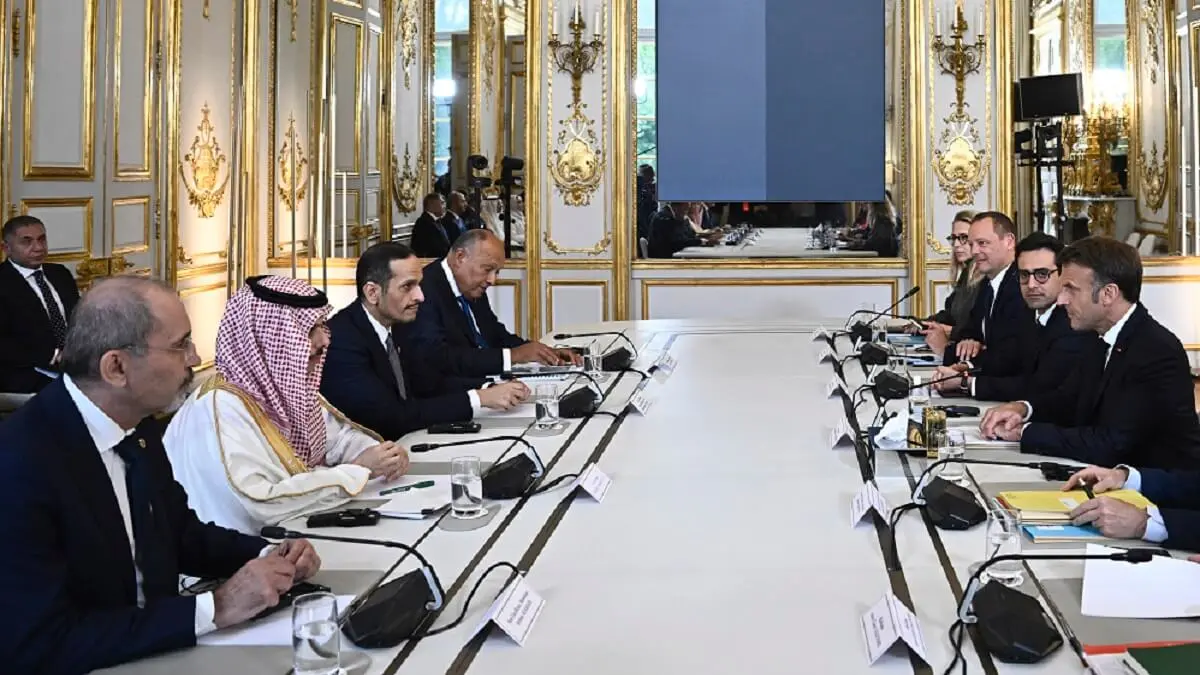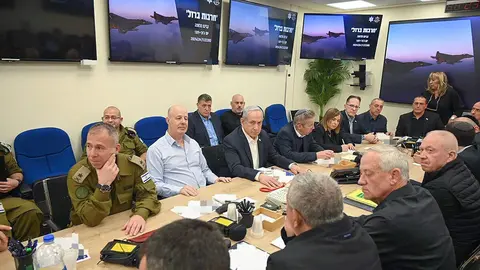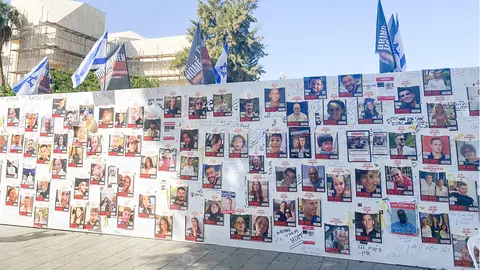Franco-Arab summit highlights two-state solution to Palestinian conflict

The President of France, Emmanuel Macron, received at the Elysée Palace in Paris the Foreign Minister of Saudi Arabia, Prince Faisal bin Farhan, the Prime Minister and Foreign Minister of Qatar, Sheikh Mohammed bin Abdul Rahman bin Jassim Al-Thani, his Jordanian counterpart, Ayman Al-Safadi, and the Egyptian Foreign Minister, Sameh Shoukry, to discuss the Gaza crisis, as confirmed by the official Saudi news agency SPA.
The meeting highlighted the value of the two-state solution to end the Palestinian conflict, as officially announced by the French Presidency. In other words, to establish the cohabitation of two states simultaneously in the territory disputed by Israel and the Palestinians.
This would mean finally officially recognising the Palestinian state, something that three other countries will do on 28 May: Spain, Norway and Ireland. This announcement provoked diplomatic complaints from Israel, which criticised the decision in view of the ongoing war in Gaza, unleashed after the bloody attack by the extremist group Hamas on Israeli territory on 7 October that left around 1,200 people dead; an event that provoked the Hebrew reaction with the offensive on Gaza, which has already claimed tens of thousands of lives. The Israeli state considers that recognising the Palestinian state now would be tantamount to condoning and supporting Hamas terrorists.
Moreover, the Paris summit supported, in addition to the two-state solution, the opening of all authorised crossings to properly supply the Gaza Strip.
The discussions addressed "the actual implementation of the two-state solution, which is the only way to ensure peace and security for the State of Israel and to meet the legitimate aspirations of the Palestinians", as officially recognised. A proposal that has been considered on many occasions by the international community, but which has not materialised due to divergences over the state attributions of what would be the new Palestinian state and the dispute over where to establish the capital, since the main enclave of Jerusalem is claimed by all parties as a place of great importance for the three most important monotheistic religions: Christianity, Judaism and Islam.
Emmanuel Macron reiterated his "opposition to Israeli operations in Rafah and his call for an immediate ceasefire in Gaza and the release of all hostages" who were taken by Hamas into the Gaza Strip, as reported by the French Presidency.
In recent hours, Israel has continued to intensify its bombardment of Rafah, which hosts the main border crossing with Egypt and is currently blocked by the conflict.
The official spokesman and head of the Public Diplomacy Department of the Egyptian Foreign Ministry, Ahmed Abu Zeid, said that the visit of the Egyptian foreign minister "comes within the framework of the French side's desire to communicate and coordinate with Arab ministers to push for a ceasefire in the Gaza Strip".
He said it also comes within the framework of "discussing ways to end the humanitarian crisis and ensure the flow of aid to the residents of the Gaza Strip sufficient for their needs, as well as discussing international and regional efforts aimed at finding a serious political solution", in order to "end this crisis at its roots and support the implementation of the two-state solution".










